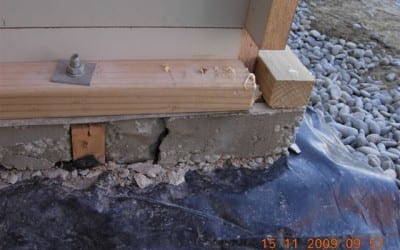As a builder, when is insurance your responsibility and when is up to your customer to arrange?
The simple answer is that it depends on a number of factors. Getting it wrong could end up costing you big time, so it’s important you understand how it works. Firstly, having a written contract is a good idea, because it will usually set out who is responsible for arranging insurance. Remember, in a residential context if the work is worth more than $30,000 including GST, or if the homeowner asks for it, you must supply a disclosure statement outlining what insurance you have or intend to arrange. The following article will outline normal practice in the most common situations.
Contract Works Insurance
This covers the works while under construction from things like accidental damage, theft, storm damage, fire vandalism and natural hazards such as flood and earthquake.
Are you working directly for a homeowner?
If you’re labour only – the homeowner should arrange it.
Whether it’s a new build or an alteration or renovation it’s their responsibility, as they’re effectively acting as the main contractor. You’re simply one of a number of subcontractors. Tips:
- The policy needs to include cover for subcontractors (often an extension that needs to be added).
- You should request a copy of the insurance certificate before starting work, to check that it correctly covers the job and does include subcontractors.
- Sometimes homeowners struggle to arrange the right cover with their domestic house insurer. If this is the case you can point them to Builtin’s website, where they can arrange the cover they need directly, without you needing to take on this obligation.
- In some cases you may be asked to take on a “labour only plus” type role, where you do some of the project management and site supervision. In that case you need to clearly agree with your client who is responsible for arranging the insurance.
If you have a full contract but it’s for work to an existing structure – usually the homeowner will arrange it.
This is because they should already have the existing structure insured and it’s preferable to arrange the insurance for the building work with the same insurer. If something happened and there was a claim for damage to both the works and the existing structure, having to deal with two insurers could be problematic. In some cases the homeowner may find it difficult (or expensive) to arrange cover with their existing insurer, so again they can come to Builtin.
If you have a full contract and it’s for a new build – usually the builder will arrange it.
This is because a normal full build contract for a new home will specify that it’s the builder’s responsibility. The policy will still cover both parties, but the builder puts it in place.
Are you working for a building company?
The building company usually arranges this.
It will cover their employees and they should have a policy that “includes subcontractors”. It may be they have an annual policy that covers all their projects, rather than arranging one per job. Either way, it’s a good idea for you to see a copy of it to be sure you’re properly protected as a subcontractor under their policy.
In a nutshell
Whether you’re working for a homeowner or a building company you need to check the terms of your contract closely and make sure the right cover has been put in place before you start work. Who is responsible for arranging often depends on what the contract says, the type of relationship you have with whoever’s paying you and the type of work it is.




